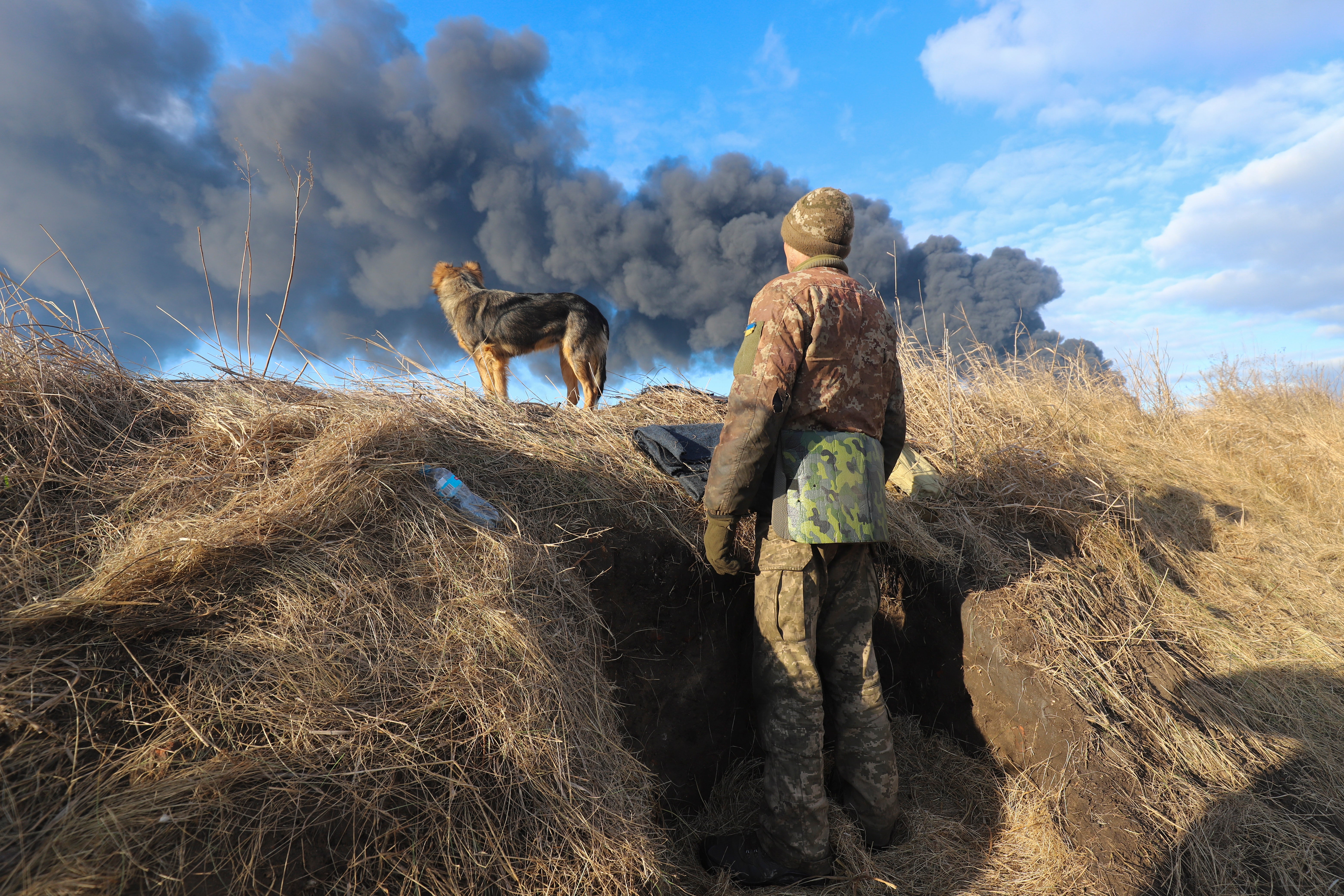It was supposed to be a lightning war. One hundred days on, the Russo-Ukrainian war shows little sign of ending.
It is a contemporary conflict but one fought with weaponry more traditionally associated with the 20th century – heavy artillery and tanks – and methods more reminiscent of medieval barbarities, such as sieges and targeting of civilian populations. It is evolving into a war of attrition, one in which neither side seems able to deliver a decisive blow, but one that neither side can afford to lose. Stalemate.
In February, and despite President Putin’s unhinged, menacing rhetoric and his baleful track record in Crimea, Syria and Georgia, the war did not seem inevitable.
Many analysts – and spies – thought the Kremlin was simply bullying Ukraine into moderating its enthusiasm for joining Nato and the EU. Even in Kyiv life continued as normal, because – since the first invasion of their country by Russia in 2014 – they’d grown used to their noisy, troublesome neighbour.
A full-scale, old-fashioned campaign with columns of tanks seemed improbable indeed. For whatever reason, though imperialism seems the obvious motivation, Vladimir Putin launched his “special military operation”.
As the euphemistic name suggests, it was supposed to be a limited engagement, during which the supposed “Nazi” regime would fall, Volodymyr Zelensky would flee, and the Ukrainian people would welcome their liberators with open arms and tears of joy. There were tears, but of a very different kind as the atrocities followed. Things did not go to the Kremlin’s plans.
Far from welcoming the Russians, the Ukrainians had the audacity to fight back, and with great bravery, brains and distinction. So rather than being a show of strength, the Ukraine campaign has mostly been a display of spectacular military incompetence, with soldiers captured, tanks destroyed, and even a flagship – the Moskva – sunk. The Russians suffered terrible casualties and were forced into humiliating defeats.
Sooner or later, the sheer weight of Russian resources and the shelling of civilian centres was going to make some kind of difference, and so it has proved. Regrouped and with a less boneheaded leadership, the Red Army is no longer making such a fool of itself, though the conduct of its soldiers still disgraces Russia. But at the same time the flow of funds, intelligence, advice and hardware from the west has enabled Ukraine to counterpunch and sometimes push the aggressors back to the border.
The task now is obvious. The west needs to redouble its efforts to strangle the Russian economy and deliver to Ukraine the very best of its military hardware, with the necessary training and advice. Germany is at last sending its tanks east, and the Americans are helping with missile defence systems that can protect an entire city. President Biden is right to prohibit any direct attacks going into Russian territory because this is above all a defensive exercise. With such sustained help, it will be impossible for Russia to win this war.
The west cannot lose its nerve now, despite the economic hardships the war is inflicting, because to do so would merely invite an even bigger war later on. Talk of a peace settlement is to be encouraged, but there can be no lasting peace in Europe to be achieved by simply rewarding Russian aggression with territorial gains.
That is the lesson of appeasement through the ages. So far, Russia’s threats to escalate the war to first-use nuclear weapons on western interests have proven empty, because the Kremlin cannot be sure how the west will respond to such a declaration of war, and even the most misguided Russian general must know they cannot win a war with Nato.
To keep up to speed with all the latest opinions and comment sign up to our free weekly Voices Dispatches newsletter by clicking here
Indeed, the reaction across the civilised world to Russia’s aggression has been such that Nato is more united and more committed to defending eastern Europe – and soon, it will be larger than ever. The accession of Sweden and Finland will bring a substantial addition to military capabilities. This unexpected strengthening of Nato is another of the many unintended consequences of President Putin’s gamble.
The Donbas is now America’s and Nato’s front line as much as it is Ukraine’s, and it needs to be taken seriously. The strategy is the right one: helping Ukrainians to fight their war effectively and professionally, and giving them such an advantage on the ground and in the air that they can at least defends their territory. The Black Sea is the other main theatre of war that requires a similar diplomatic and military effort.
Turkey, America and the rest of Nato need to secure safe passage for grain and edible oils from Ukrainian ports to help feed the hungry in the Middle East, south Asia and north Africa. It is well within the means of a coalition of the willing across the west to help Ukraine win this war. The next 100 days may prove that.







Join our commenting forum
Join thought-provoking conversations, follow other Independent readers and see their replies
5Comments